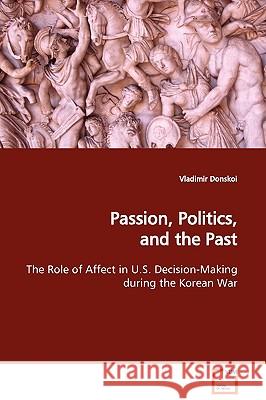Passion, Politics, and the Past The Role of Affect in U.S. Decision-Making during the Korean War » książka
Passion, Politics, and the Past The Role of Affect in U.S. Decision-Making during the Korean War
ISBN-13: 9783639109115 / Angielski / Miękka / 2008 / 240 str.
This book shows that foreign policy decision-making is not as "cool-minded" as it is deemed to be. It analyses how the lessons of history influence decision-making and argues that, during crises, a decision-makers affect (anger and fear) can bias him towards straightforward responses of the fight or flight type. This insight also prompts a fresh answer to the question what analogies are likely to be picked from the vast pool of historical events: a) behaviourally straightforward analogies, with forceful imagery and clear-cut affective connotations; b) analogies that are already established in the political discourse; c) exceedingly grave analogies; d) many different analogies with congruent inferences. Thus, politicians tend to draw analogies that are affectively salient (e.g. between Saddam Hussein and Hitler) rather than factually accurate, and this explains why such analogies are often farfetched. The case on which the model is then tested is the U.S. decision-making during 1st week of the Korean War. This book will be especially interesting for scholars and practitioners in the field of politics as well as for everyone who wants to understand how emotions influence decisions.











